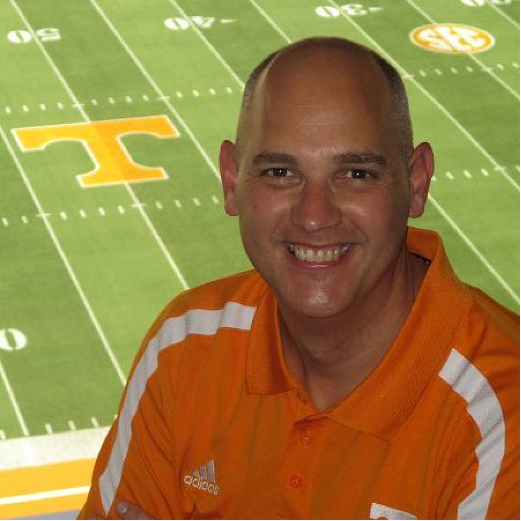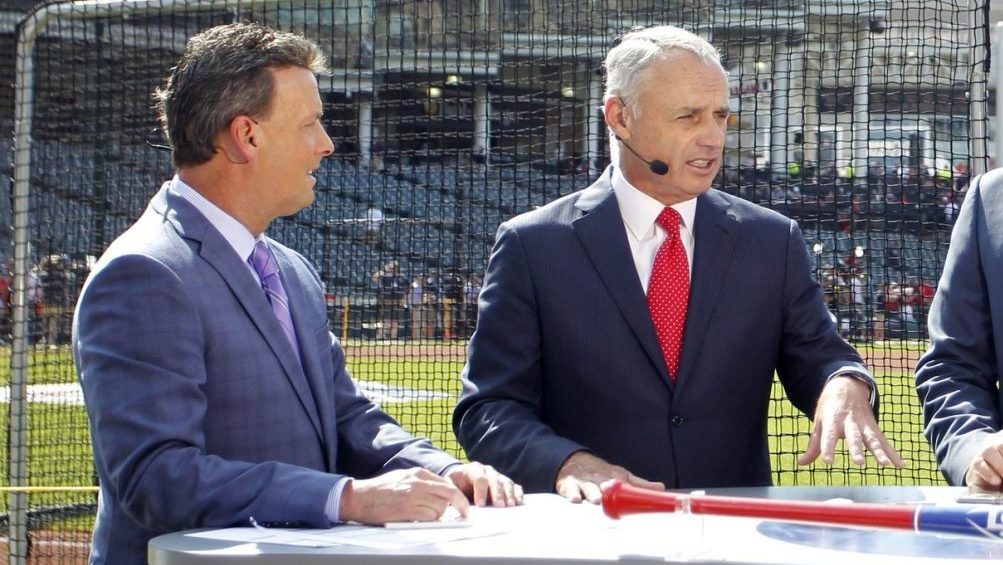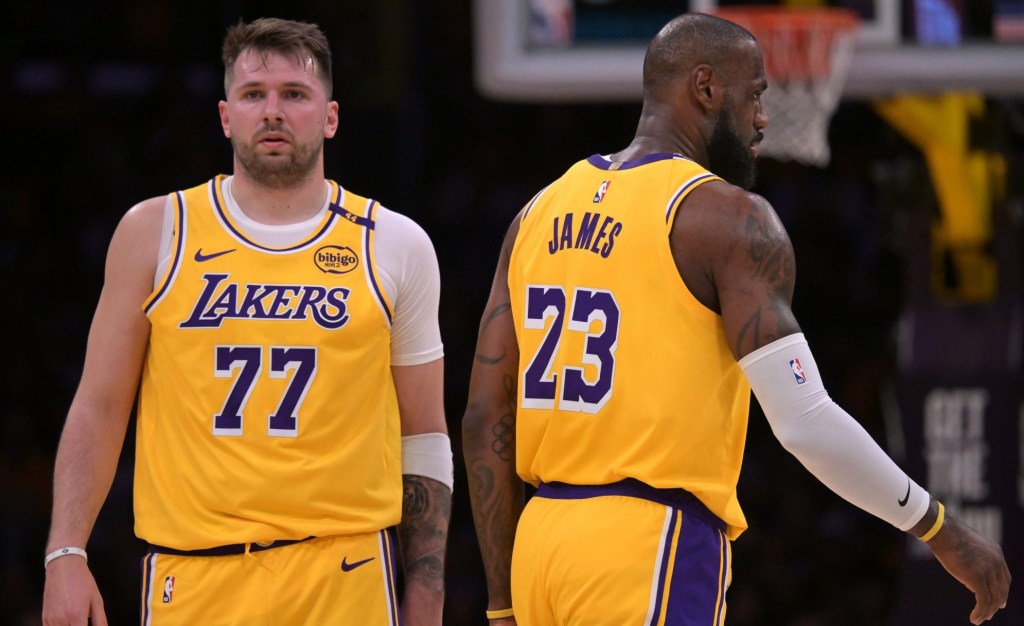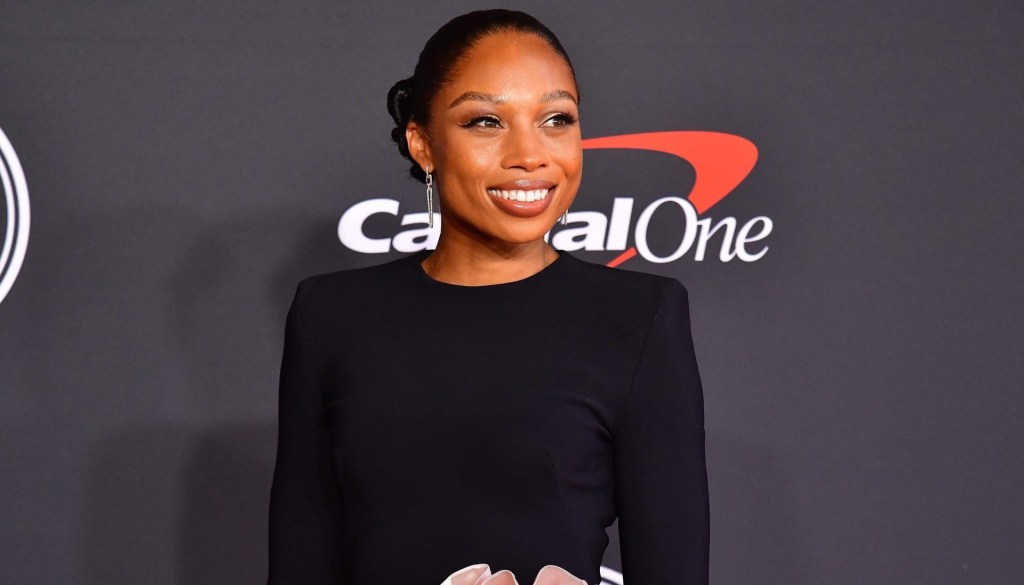By: Amari Dryden, @Amari_Dryden

Front Office Sports is proud to have sat down with Dr. Rob Hardin, a professor in the Sport Management program in the department of Kinesiology, Recreation, and Sport Studies at the University of Tennessee. He has had a couple of dream jobs but after taking a class in the sociology of sport, he realized he wanted to do research and become a professor. He was gracious enough to offer up his wisdom about how technology and social media have changed collegiate athletics, what mistakes students make on social media and what they can do to prevent their personal brand from being tarnished.
What has your journey been like after graduating from East Tennessee State University up until now, being a professor at the University of Tennessee?
My goal was to work at a newspaper and cover sports so I majored in journalism when I was an undergraduate student. I graduated and was able to get a job at a mid-size newspaper covering sports. I did it for about five months then decided I didn’t see myself doing this job for the next five years. I had to make some decisions on what else I wanted to try to do.
I was able to get into graduate school at the University of Tennessee in the communications program. I got a job in the sports information office at Tennessee and I loved it. I started at Tennessee the same year Peyton Manning started so I came in with his signing class. The experience working in sports information was amazing. At that point I thought I was going to work in college athletics.
I then took a sociology of sport class and I loved it. I loved not necessarily the who, what, when in sports but the how and the why and the social issues in sports. That turned me onto the research part of sports which is what led me to pursue my PhD. I stayed at Tennessee and earned my PhD in communications. Luckily there was a position opening for a faculty member in the Sport Management program and I was able to get the job.
I still work in athletics. I’m a part of the official statistics crew for football and men’s and women’s basketball. I also help with a web.com tour for PGA in Knoxville. It’s called the Championship Committee and I’m on the planning team for that organization.
Leaving my newspaper job was a great thing to do. It was a big step because I thought I had the job I wanted to have but then I realized that’s not what I wanted. I had a job in sports information which is what I thought I wanted but it wasn’t so it’s like I had my dream job a couple of times but it turned out they weren’t my dream jobs, but I ended up in the job I wanted to be in.
It’s okay to look past your immediate situation and think about what you want to be doing in five years. In our sport management program at Tennessee, we ask our students ‘what do you want to be doing in five years’ and ‘what are you doing today to put yourself in a position to do that.’ You may not think volunteering at a certain event isn’t that important but you never know who you might meet at that event that will be the person you need to network within five years’ time. When you’re 18, 19, 20-years old, it’s hard to think about what you want to be doing when you’re 22 or 23 but you really need to start thinking about it.
What inspired you to become a professor?
I like the research aspect of it, trying to understand sports in more detail. I love sports. My whole life revolves around it right now. I love being on a college campus. It changes every day. You get different students all the time, and I really like working with graduate students. What really drove me to be a faculty member was research and trying to understand sports more in depth than just home runs and touchdowns.
How have the courses you teach changed over the years?
I teach intercollegiate athletics and it changes every day it seems especially right now with all the autonomy changes that happened last year. There are constantly changes in the rules, bylaws and policies in the NCAA.
Obviously technology has changed with the development of social media. When I started my faculty position in 2001, social media really didn’t exist at all. All of that has changed everything such as how people interact, how athletes interact with fans and vice versa.
How much of an impact has social media had in regards to the sports world over the years?
It’s changed how people do business. It’s part of every marketing plan, personal branding plan, how athletes interact, and how athletes can make a brand for themselves. Even when you watch a game on television, there’s always a hash tag down in the corner of the screen like #SuperBowlXLIX. Almost every event has a hash tag.
What are some mistakes students make on social media that hinder their ability to get a job?
Students don’t separate their professional life from their personal life. That’s the biggest thing. I think it’s okay to have two Twitter accounts, one for your personal life and one for your professional life. People mix those up and that becomes a big problem. Every time anyone applies for a job, the employer is going to look at their social media profile especially Twitter and Instagram and Facebook. I don’t see how valuable it is to post on social media a picture or video of you killing three beers at a bar on a Friday night at 2 a.m. I can see how it can hurt somebody tremendously.
All social media is building your personal brand. As an aspiring professional, you have to be cognizant of what you want your personal brand to be and how your social media helps shape that. I get that people are 18, 19, 20-years old, but that’s something you’re doing that’s going to put you in an unfortunate position.
I had someone from ESPN tell me that when a person applies for a job, she checks the social media profile and her response was if you can’t protect and promote your personal brand, I can’t trust you to protect and promote my brand.
What is some advice you tell your students who want to work in intercollegiate athletics?
Try to develop a plan saying what you want to be doing in five years and figure out what you can be doing now to get you there. That can be anything from volunteering in event management or marketing.
Another thing our program talks about as a whole is take the smallest job possible and do it the best to your ability because every job is important. Make whatever you’re doing the most important thing and do it great so people will notice that. People notice when you’re doing a great job and when you’re not doing a great job. You may not know it but people are always watching you.
We also talk about earned success. Don’t expect things to happen for you. You need to make things happen for yourself. Don’t think you’re going to go to college and have a 3.7 GPA and do one internship and think you’re going to get a job only because of that. That’s not how it happens. You need to be making things happen for yourself. You need to be proactive in your career. Don’t do the minimum and go through the checkboxes. Think about how you need to put yourself in a position to be successful.
What events have the students in Partners in Sports (Tennessee’s sport management student association) put on that you have seen made an impact on the members of the organization?
Our biggest thing we do is a conference in the fall. It’s a six hour conference. We invite four people to come and speak. We try to get people who are fairly renowned to come and speak. Last year our speakers were Kevin Ross, the vice president of footwear for Under Armour, and Bridget Burke, who works with digital assets for IMG. It’s great to hear their stories and for them to share them with our students.
They’ve all been in those same situations. We’ve had Tom Condon who is Peyton Manning’s agent, Peter Bynoe who owned the Denver Nuggets at the time, Bill Schmidt, the vice president of marketing for Gatorade and is also the person who signed Michael Jordan to Gatorade, a couple Olympic Gold medal winners, Keri Potts the director of public relations for ESPN. Students plan the conference which is just a half day event so it’s not a full day commitment. We do it from 8:30 to 2:30.
The other thing we do is a women’s roundtable. It’s for women only. We invite a woman who works in the sport industry to come and speak to our female students. It’s an intimate setting. There are only about 15 people that are involved. They go out to dinner somewhere and let the guest talk and interact with the students about what it’s like for a woman working in sports. We’ve been doing that for three years. We’ve had someone from the Chick-fil-A Bowl, a representative from Under Armour, and Joan Cronan who was the director of women’s athletics at Tennessee. We try to do at least one a year. That event has probably been one of the biggest impactful events we’ve had.
Parting wisdom?
You need to build your personal brand. What do you want your personal brand to be? Think about your personal brand and then start doing things to start shaping it. When people say your name, what do you want them to think? You have to do that using social media, work ethic, volunteer experiences, work experiences, and interactions with people.
Networking is huge. Networking isn’t about who you know, but who knows you. That’s important as far as trying to make a name for you. The sports industry is competitive. What are you doing to make yourself stand apart from the crowd? Put yourself in position to be successful. Everybody starts at the bottom and works their way up. That gets lost on a lot of people.
We would like to thank Rob for his time and insight and we wish him the best in all his future endeavors!
You can follow him on Twitter here, or connect with him on LinkedIn here!

















